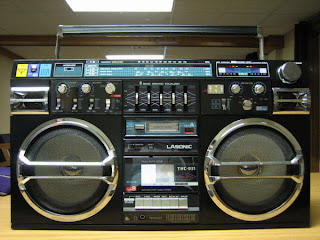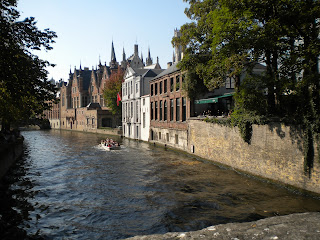Brückentag: long weekend
Happy Halloween to you! Here we're fresh off the time change, which marks the beginning of the "dunkle Jahreszeit," or dark season. Sunday you woke up at your usual time only to find that it's actually an hour earlier than usual. After winding your clocks and watches back, you notice it will start to get dark rather early, as it will be until next year when we change back (or rather, forward).
Regarding last week’s word (Ferien) I mentioned the holidays observed here in (*parts of) Germany and tomorrow is one of them, Allerheiligen or All Saints. Besides a holiday there’s one other thing most people enjoy, a long weekend. There are a couple holidays here in Germany that fall either on a Thursday or Tuesday and a lot of people (myself included) request the work day (Monday or Friday) between a holiday and a weekend day off to form a sort of bridge, if you will (fun fact: Brücke means bridge). Today the streets are a bit more crowded and shops are a bit more full as those who would normally be in the office or on the go have a free weekday to cruise around and enjoy a leisurely stroll through the town. Since tomorrow is an actual holiday (*in NRW) you can bet that most shops will be closed (in fact some of the smaller ones are even closed today), so there’s a bit more action than there usually is on a Monday afternoon.
It happens to also be my personal favorite time of year here in Germany, where all the leaves are beginning to fall. I find the last week of October and beginning of November to be the epitome of Autumn. It’s the golden time, usually lasting three or so weeks, where the weather is crisp, not cold, the hillsides are colorful, not baron, and you actually feel the seasons changing. In a few weeks all the trees will be bare and it will just be that pre-winter period where it gradually gets colder and you’re just kind of waiting for the first snow to fall. But right now is a beautiful time, and I bet some American readers might feel a slight tinge of jealousy knowing that tonight in Germany (well, in most German states anyway), those who do wish to celebrate Halloween will not have to worry about getting up early for work tomorrow.
To close, some pictures of the trees here, because I'm from southern California and palm trees don't change colors so actual Autumn weather, to me, is a beautiful thing.
Regarding last week’s word (Ferien) I mentioned the holidays observed here in (*parts of) Germany and tomorrow is one of them, Allerheiligen or All Saints. Besides a holiday there’s one other thing most people enjoy, a long weekend. There are a couple holidays here in Germany that fall either on a Thursday or Tuesday and a lot of people (myself included) request the work day (Monday or Friday) between a holiday and a weekend day off to form a sort of bridge, if you will (fun fact: Brücke means bridge). Today the streets are a bit more crowded and shops are a bit more full as those who would normally be in the office or on the go have a free weekday to cruise around and enjoy a leisurely stroll through the town. Since tomorrow is an actual holiday (*in NRW) you can bet that most shops will be closed (in fact some of the smaller ones are even closed today), so there’s a bit more action than there usually is on a Monday afternoon.
It happens to also be my personal favorite time of year here in Germany, where all the leaves are beginning to fall. I find the last week of October and beginning of November to be the epitome of Autumn. It’s the golden time, usually lasting three or so weeks, where the weather is crisp, not cold, the hillsides are colorful, not baron, and you actually feel the seasons changing. In a few weeks all the trees will be bare and it will just be that pre-winter period where it gradually gets colder and you’re just kind of waiting for the first snow to fall. But right now is a beautiful time, and I bet some American readers might feel a slight tinge of jealousy knowing that tonight in Germany (well, in most German states anyway), those who do wish to celebrate Halloween will not have to worry about getting up early for work tomorrow.
To close, some pictures of the trees here, because I'm from southern California and palm trees don't change colors so actual Autumn weather, to me, is a beautiful thing.
Have to try the ropes course next time around.









































